Alumni & Advancement
Navigating the Digital Boundary: Innovators Talks Address the New Student Journey
The quote above is not only a great illustration of the spirit of higher education, but also of the evolution […]
Alumni & Advancement
The quote above is not only a great illustration of the spirit of higher education, but also of the evolution […]
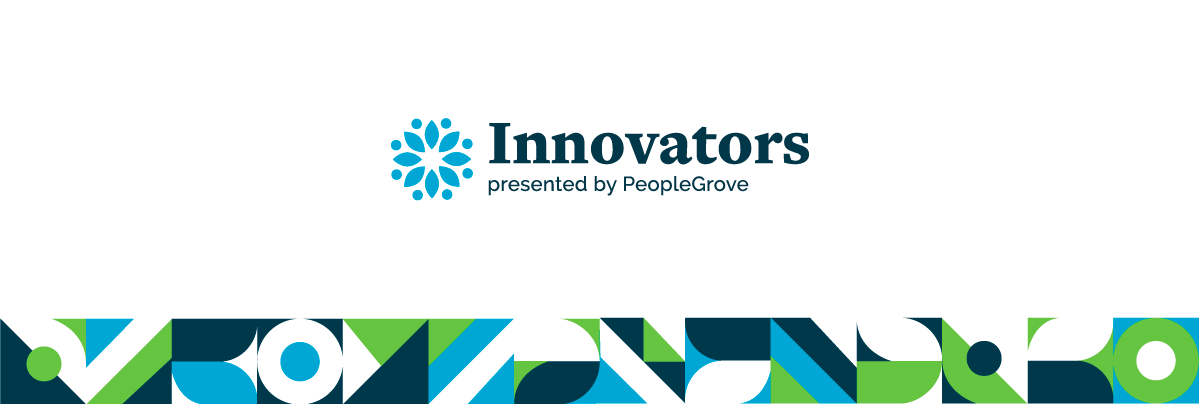
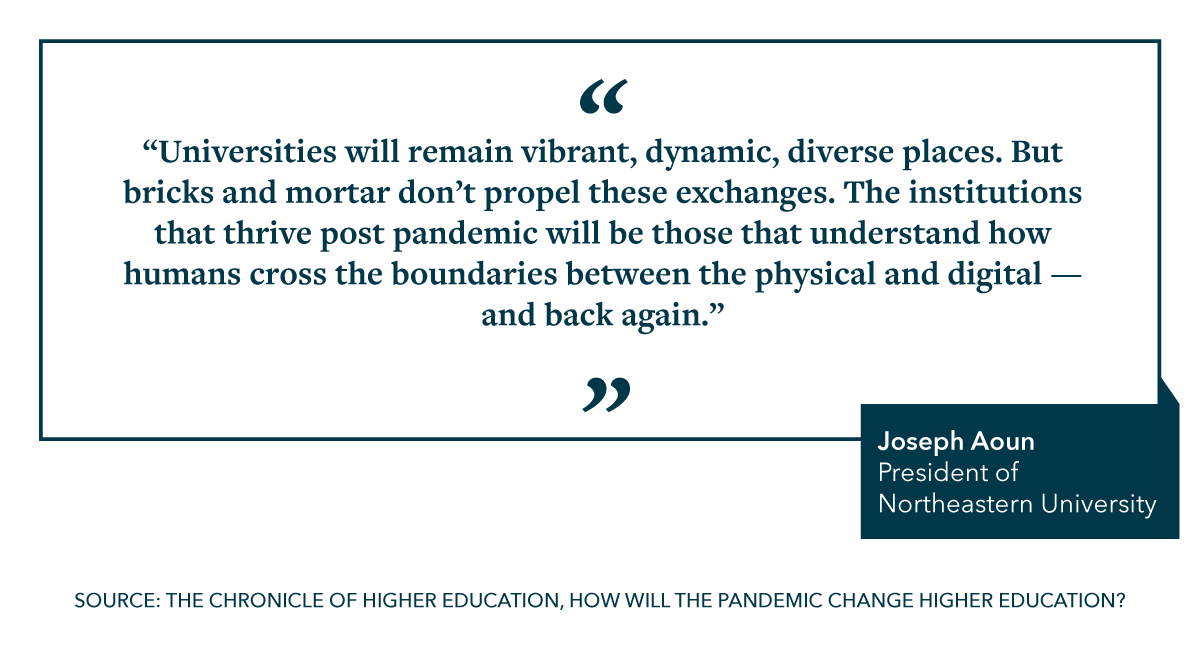
The quote above is not only a great illustration of the spirit of higher education, but also of the evolution of our Innovators gatherings and our conferences. Nothing is more enjoyable for us as a team than to bring our community together across the country and around the world. One of my fondest personal memories from last year was celebrating with our partners on the boardwalk near Epcot during the NACE Conference in Orlando.
One day, we’ll be back to a place where we can gather together again. However, the structures we build today to support our communities will remain in place. We must be thoughtful in ensuring that those structures allow us to go back and forth across this “digital boundary” with ease.
So what do these structures look like? How do we ensure that the spirit of campus is maintained?
To help us start to address what the new student journey will look like, we’re bringing together thought leaders from across our partner community and beyond to share their ideas in our monthly Innovators Talk series. Here are a few themes that we’ve discussed so far.
![]()
May 2020 – Virtual Innovators Conference
Change Accelerated
The events of 2020 have served as a means of speeding up the innovations already in motion at many institutions. In the keynote of our virtual conference in May, Dr. Farouk Dey, Vice Provost of Integrative Learning and Life Design at Johns Hopkins University, spoke about this acceleration. Dr. Dey has previously argued that schools have recognized that what happens outside the classroom is just as important as the learning inside the classroom. He cites connections and communities as key to ensuring doors are opened for students in the workplace. After all, most jobs are obtained through networks — another trend that is sure to accelerate in tough economic times.
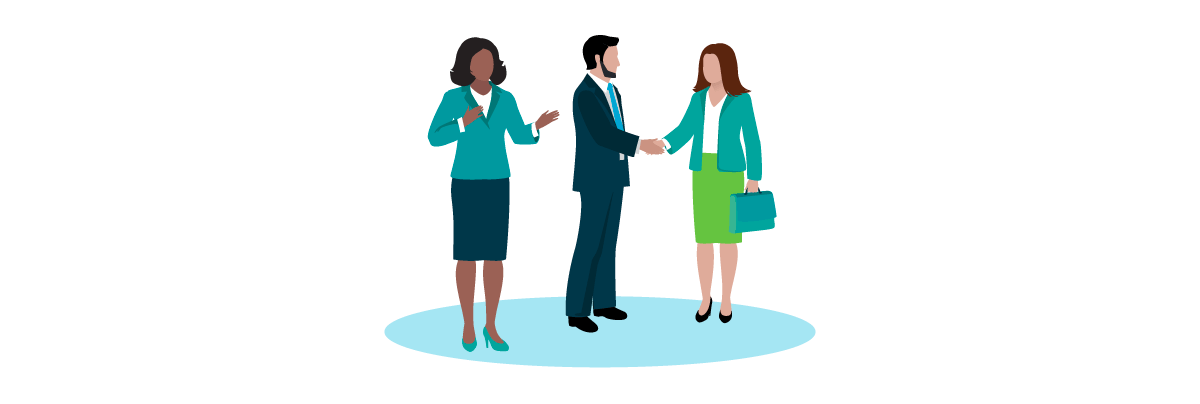
Dr. Dey stressed how imperative it is that these communities are accessible to everyone. “If the last 10 years in higher education have been about creating ecosystems of connections and of communities,” Dr. Dey said, “the next 10 years need to be about making these connections and these communities accessible to all regardless of background or social capital.” Only then will higher education fulfill its promise of social mobility for students.
Personalization at Scale
Students want to feel like their institution knows who they are — even at the very start of the student journey. That means providing students with resources that feel tailored to them. Luckily, it’s the community that can make that possible. Take the University of San Diego’s (USD) Torero Ambassador Network. Students, alumni, parents, staff, and faculty have all banded together to be resources for prospective students and their families. These potential future Toreros can connect with the USD community members who can best answer their questions. As Molly Feeney, a USD ambassador shared in an Innovators Talk, you just have to ask and your community will support you. “I think everyone should realize that you have passionate students at your university, they’re just waiting to be utilized.”

This personalization extends into the student journey once they are enrolled, with an added layer of complexity. The asynchronous nature of this new normal means that students will need access to whatever resource they feel they need, when they need it — without going through a step-by-step process to gain the right to access those resources. These on-demand resources are how schools like University of Maryland Global Campus and Capella University have reinvented their academic and career support in the digital environment. As Amy Buechler-Steubing, Manager for the Center for Academic Success & Excellence at Capella University shared in an Innovators Talk, offering a variety of options for students allows them to feel that these resources are personalized to their needs.
Too Critical to be Left to Chance
Gallup research shows us that there are certain experiences that lead to a student feeling confident that they’ll graduate with the skills for job market success. These “Big Six” fall into two categories: Mentored Support and Experiential Learning. Basically, a student who feels that the university community supports them and has had the opportunity to participate in an experience that makes the classroom learning real is going to feel ready for the workforce. As you may expect, the more boxes students check in the “Big Six,” the more confident they feel.
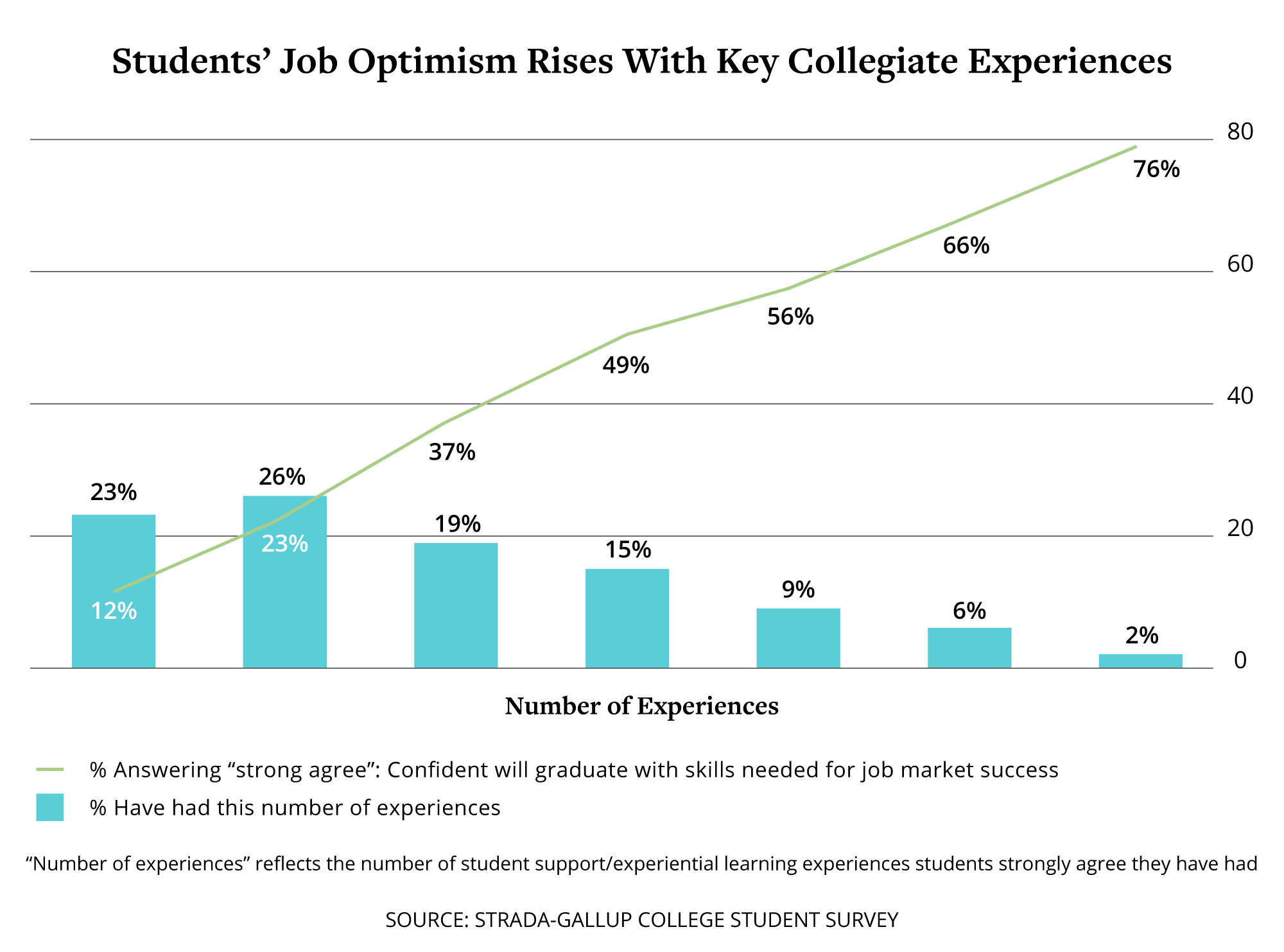
Too often, institutions relied on the proximity of campus or the organic nature of the community to make these happen. Now, through partnerships like the BridgesAlliance, institutions are ensuring that both of these experiences live across the digital boundary. As Jen Pollard, Director of Operations & Analytics in Career Education at Wellesley College shared “it is not mentorship in isolation from internships or experiential learning. The two have to collide in this moment.” Bringing together both categories intentionally will be critical.

Of course, alumni have a huge role to play in this model. However, with 40 million new unemployed and a seemingly Lost Class of 2020; alumni will play the dual role of knowledge-sharer and knowledge-seeker. They will be your best source of mentors while also being in need of mentorship. The PeopleGrove Alumni Advisory Board spoke about the importance of partnerships in driving success in the future of alumni relations in a recent Innovators Talks panel. “Talk about your team and your students and the way the partners are coming together, said Susan deMuth, Assistant Vice President for Alumni Relations at Johns Hopkins University. “That builds community. That builds team, and that’s going to really be a foundation to grow on as we move into the future.”
![]()
June 2020 – Innovators Talk – “Networked Networks”
Intentionally Integrated Support Systems
Julia Freeland Fisher, author of Who You Know: Unlocking Innovations That Expand Students’ Networks and Director of Education at the Clayton Christensen Institute, sees similar trends in her research. In our June Innovators Talk, she challenged higher ed to be strategic not only about leveraging communities, but also in building a mixture of strong ties and weak ties. “As you think about ‘how are we doing as an institution in brokering and building our students networks’…not everything has to be a mentor capital relationship to be valuable to your students,” Fisher said. “It can be an array of relationships that students are accessing to serve different purposes and open different doors in their lives.” The key is to be intentional about integrating this array into the student journey.
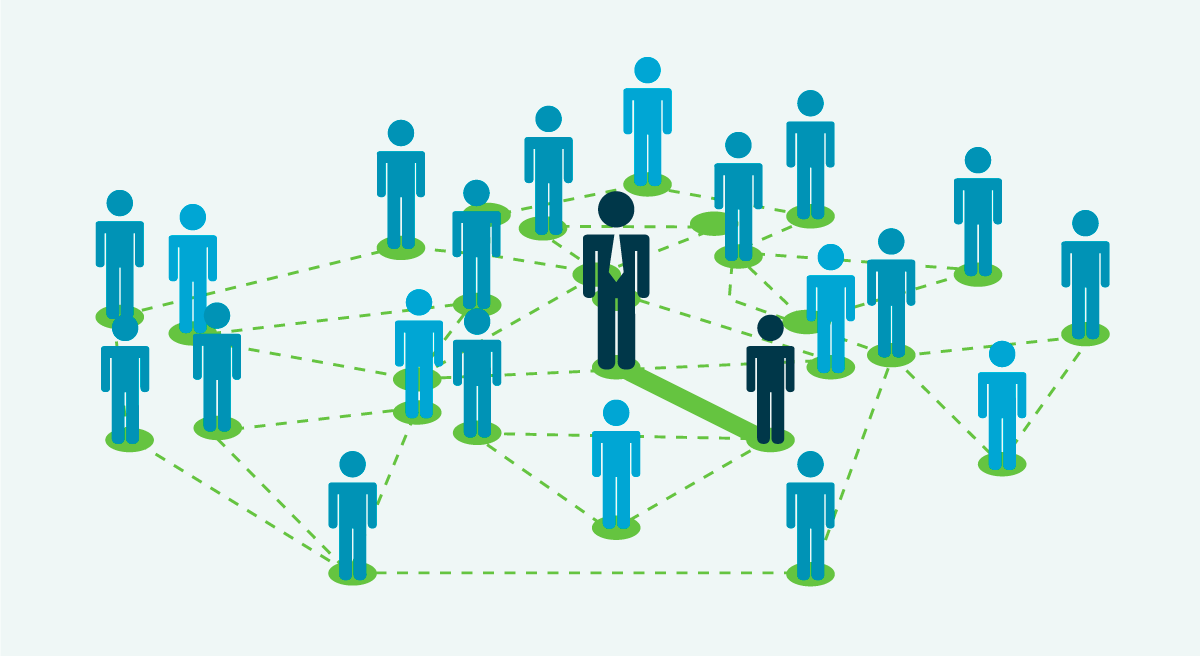
Ms. Freeland Fisher also spoke to the challenge of measuring the social capital that students have throughout their educational journey — starting with their inherited networks. An inherited network is the social capital that a person possesses by virtue of their parents or guardians. Not surprisingly, those with parents who have bachelor’s degrees are twice as likely to inherit networks in the knowledge economy. “Students are arriving with very different inherited networks that may be shaping not only the coursework they are pursuing, but the sorts of internships they can secure and the jobs they can secure post-graduation,” said Ms. Freeland Fisher. Colleges and universities need to measure these networks so that there is a benchmark for each individual and an understanding of what is needed to ensure success for that student.
![]()
Gathering Places Across the Digital Boundary
These communities have been central to how higher education has responded to the changes of the Spring of 2020. I’ve seen countless examples of institutions getting creative to continue to propel the exchanges that make universities the “vibrant, dynamic, diverse” place that they are.
At PeopleGrove, we hope to emulate their example and continue to bring our partner community together in many ways. Through our Innovators Talks, we’re excited to invite thought leaders from our partner community and beyond to share their perspectives and work.
We’re proud to feature a panel in July centered around the work of career services and the launch of the BridgesAlliance. Thought leaders from the University of Miami, Loyola University Maryland, and San Jose State University will discuss how they are creating ecosystems where connections, experience, and purpose are woven together.
We invite you to visit peoplegroveinnovators.com to learn more about our upcoming events as well as see playbacks from all our past Talks.
